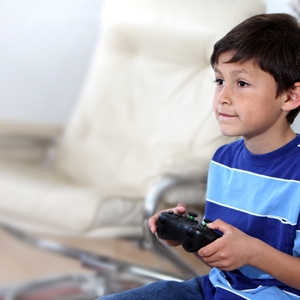
What can a recreated Super Mario Bros. teach us about intellectual property law?
October 22, 2013 2:38 pm Leave your thoughts
Not content to play video games all day, a student at Rensselaer Polytechnic Institute in New York decided to bring the hobby to the masses. According to an article in the Washington Post, the student, Josh Goldberg, recently created the website Full Screen Mario, a recreation of the classic game Super Mario Bros. for the Nintendo Entertainment System.
This isn't just a cheap knock-off. Goldberg reportedly recreated every aspect of the game, from the placement of 8-bit clouds to the instantly recognizable physics of Mario's jump. He did it so well that thousands of unique visitors have used the site, crashing it at times. Unfortunately for Goldberg, he has also attracted the attention of Nintendo, which is not pleased.
"Nintendo respects the intellectual property rights of other companies, and in turn expects others to respect ours as well," the company said in a statement. "Nintendo is seeking the removal of the content, as we vigorously protect against infringement of our intellectual property rights."
Goldberg told the Post that he never got permission from Nintendo, saying, "I didn't think it would be a big project." However, now that it has reached this level, Slate contributor Ryan Vogt thinks it should be taken down. He argues that the original Super Mario Bros. is still a commercially significant property for Nintendo, since the company still sells digital copies to owners of its handheld and home console systems. In addition, Vogt adds that Mario himself is one of the most recognizable characters in video games or any other medium. For Nintendo to allow Full Screen Mario to continue would be equivalent, he argues, to Disney accepting the use of Mickey Mouse without permission.
Washington Post contributor Timothy Lee disagrees. He considers this story to be a textbook example of how the copyright system needs to be reformed. Under current law, Super Mario Bros. will not fall into the public domain until 2082, thanks to copyrights that last 95 years. Lee argues that this hurts gaming culture. Instead, he prefers shorter copyrights. For example, if intellectual property was protected for only 28 years—as was the case when the U.S. was founded—Super Mario Bros. would be in the public domain in the next few months.
And it's not just about one popular game, but rather all the other games that have come and gone over the years.
"If copyright terms were shorter, old video games could find a new, emulated life when their copyrights expire, just as the Gutenberg project has made thousands of books published before 1923 freely available online," Lee writes. "That's especially important because old consoles wear out much faster than old books do. If you find a book published in 1980, chances are you'll be able to read it without much difficulty. But if you find an old Atari video game cartridge, you might struggle to find the Atari 2600 console required to play it."
Given that Congress has shown no inclination to follow Lee's advice, it is likely that Nintendo will move to take down Full Screen Mario. But regardless of the website's fate, it is important for parties on both sides of the issue to continue thinking about intellectual property law and its implications for new technology and a changing marketplace.
Categorised in: Entertainment Law
This post was written by




